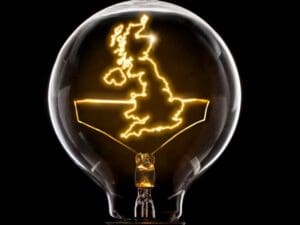
The EU has concluded inter-institutional negotiations on the enhanced legal framework for energy efficiency, setting binding targets for consumption reduction with ‘efficiency first’ as a legal standing for the first time.
The amended Energy Efficiency Directive will set energy-saving targets for both primary and final energy consumption in the EU.
With the directive, member states will have to collectively ensure a reduction in energy consumption of at least 11.7% at EU level by 2030.
A monitoring and enforcement mechanism will accompany this objective to make sure member states deliver on their national contributions to this binding EU target.
EU Commissioner for Energy, Kadri Simson welcomed the adoption: “Another milestone has been achieved today towards completing the Fit For 55 objectives. Our increased ambition and stronger measures on energy efficiency will accelerate the energy transition.”
Have you read:
Retrofitting buildings and doubling the pace of energy efficiency key topics at IEA conference in Paris
EU and South Korea partner on energy efficiency and green mobility
With the directive, EU countries will now be legally required to prioritise energy efficiency in policymaking, planning and major investments.
EU countries also agreed to almost double their annual energy savings obligation in the coming years.
Under the recast directive, EU countries will be required to achieve an average annual energy savings rate of 1.49% from 2024 to 2030, up from the current requirement of 0.8%, driving energy savings in critical sectors like buildings, industry and transport.
With the definition of energy poverty included in the legislation, EU countries are compelled to prioritise energy efficiency improvements for vulnerable customers, low-income households, and individuals in social housing, including within the scope of the energy savings obligation.
Public sector
The recast directive aims to strengthen the role played by the public sector in enhancing energy efficiency practices.
A significant advancement, states the European Commission, is the introduction of an annual energy consumption reduction target of 1.9% for the public sector as a whole. The annual 3% buildings renovation obligation is being extended to all levels of public administration.
Energy Performance Contracts will be prioritised in the implementation of energy efficiency projects in the public sector, whenever possible. Public bodies will continue to consider energy efficiency requirements when making decisions regarding the purchase of products, buildings and services.
Businesses operating in the EU will be able to benefit from assessments of their energy use practices, with energy management systems becoming a default requirement for large energy consumers exceeding 85TJ of annual energy consumption and will be subject to mandatory audits in the event of non-compliance.
Enterprises with an energy consumption above 10 TJ will have to perform an energy audit and prepare an action plan for the different recommendations.
Data
The agreement also introduces a reporting scheme of energy performance in large data centres, promoting transparency and optimisation of energy efficiency potential.
Given the importance of digitalisation and data centres, the directive introduces an obligation for the monitoring of the energy performance of data centres.
An EU-level database will collect and publish data, which is relevant for the energy performance and water footprint of data centres with significant energy consumption.
Heating, workforce and financing
The new legislation promotes local heating and cooling plans in larger municipalities.
Based on the revised definition of efficient district heating and cooling included in the legislation, minimum requirements will be gradually tightened in the coming years towards achieving a fully decarbonised district heating and cooling supply by 2050.
EU countries will also need to ensure that certification and qualification opportunities are available for energy efficiency-related professions.
The agreement supports energy efficiency financing provisions to facilitate investments, including from the private sector, which has a key role to play given the limited public resources available for the clean energy transition.
EU countries are tasked with promoting innovative financing schemes and green lending products, ensuring wider access through transparent investment. Enhanced reporting on energy efficiency investments will improve accountability and transparency.
The Council’s endorsement follows the one given by the European Parliament earlier this month and marks the final step in the legislative process that started in July 2021 as part of the ‘Fit for 55’ package.
As part of the Clean Energy for all Europeans package, the Energy Efficiency Directive underwent significant amendments in 2018, introducing updated energy efficiency targets of at least 32.5% by 2030, based on 2007 projections. Additionally, an extended energy savings obligation was implemented, specifying annual energy savings targets for EU countries during the 2021-2030 period.
The Commission’s proposal for a second revision (a recast) of the Energy Efficiency Directive was put on the table in July 2021 as part of the Fit for 55 package. This proposal included an energy efficiency target of 9% compared to the 2020 reference scenario, asserting the important role to be played by energy efficiency in Europe’s efforts to reduce net greenhouse gas emissions.








